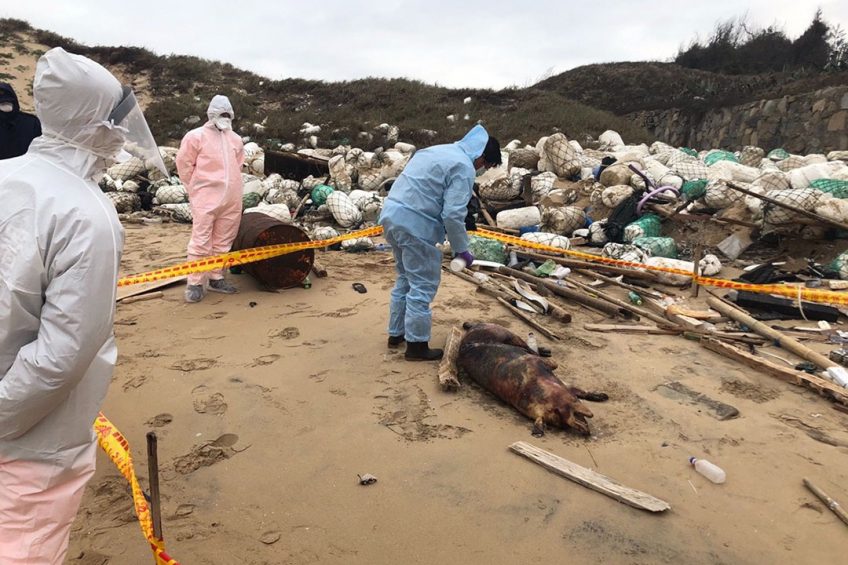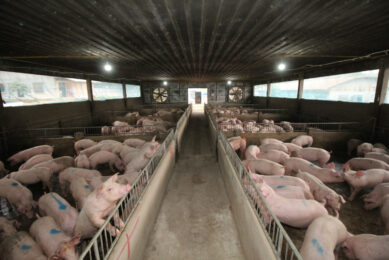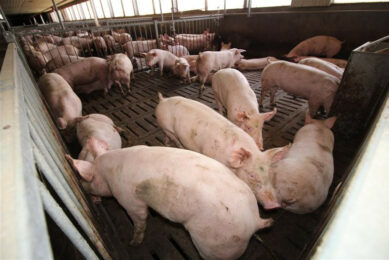ASF China: Infected pig carcass found at Taiwanese beach

A dead pig, infected with African Swine Fever (ASF), has been found on the shores of an islet that belongs to Taiwan. Most probably it washed ashore from mainland China.
Kinmen island is located only a few km out of the coast of China and the city of Xiamen. Although it is only a short ferry ride away from the mainland, geographically, Kinmen island is part of Taiwan. Quite regularly, trash from the mainland washes ashore and on December 31, a dead pig was found between the debris.
Similar strain of ASF virus
After the discovery, the carcass was properly packaged, transported and analysed by Taiwan’s Animal Health Laboratory, where ASF virus was positively identified. The virus was, according to Taiwan’s Council of Agriculture, ‘100% similar to the isolate strain in mainland China’.
Read more on African Swine Fever in our ASF minisite
Jinmen island: 11,000 pigs
According to the local media outlet Focus Taiwan, Jinmen island is home to 68 farms, with a total of 11,000 pigs. There would be about 10 farms within a 5 km-radius around the finding place, none of which were found infected. That confirmed the theory that the dead pig had washed ashore and not died of the virus on the island. Nevertheless, the island cannot export pigs or pig products for 2 weeks.
In addition to this 1st carcass, a 2nd dead carcass washed ashore on a different Taiwanese island. This carcass tested negative for ASF according to local media; it was not reported by the Taiwanese authorities either.
Taiwanese president refers to ASF
The situation has led Taiwan authorities to criticise the way the Chinese authorities deal with the ASF outbreaks. News agency Reuters wrote that the Taiwanese president Tsai Ing-wen even referred to the ASF situation in a new year’s speech, as a result of the carcasses that washed ashore. She said that China ‘never followed the relevant agreements’ and failed to provide the island with correct reports on the situation of the epidemic.
Find more on Taiwan’s pig industry in our World of Pigs application
In 2017, Taiwan was home to 5.4 million pigs. As a result of the finding on the shores of Kinmen island, Taiwan’s Council of Agriculture also encouraged all the pig farms on the island to speed up a transformation to move away from using swill feeding.
Top pig farms: Sharp profit forecast drop
News agency Reuters also reported that some larger Chinese swine farms have reported lower profit forecasts, most probably indirectly related to the ongoing ASF problems. For instance Muyuan Foods reported a 20% lower profit forecast in comparison to an earlier estimate in 2018; and 80% lower than in 2017.
In addition, Wens Foodstuff Group’s figures were 40% lower in 2018, compared to one year earlier.











